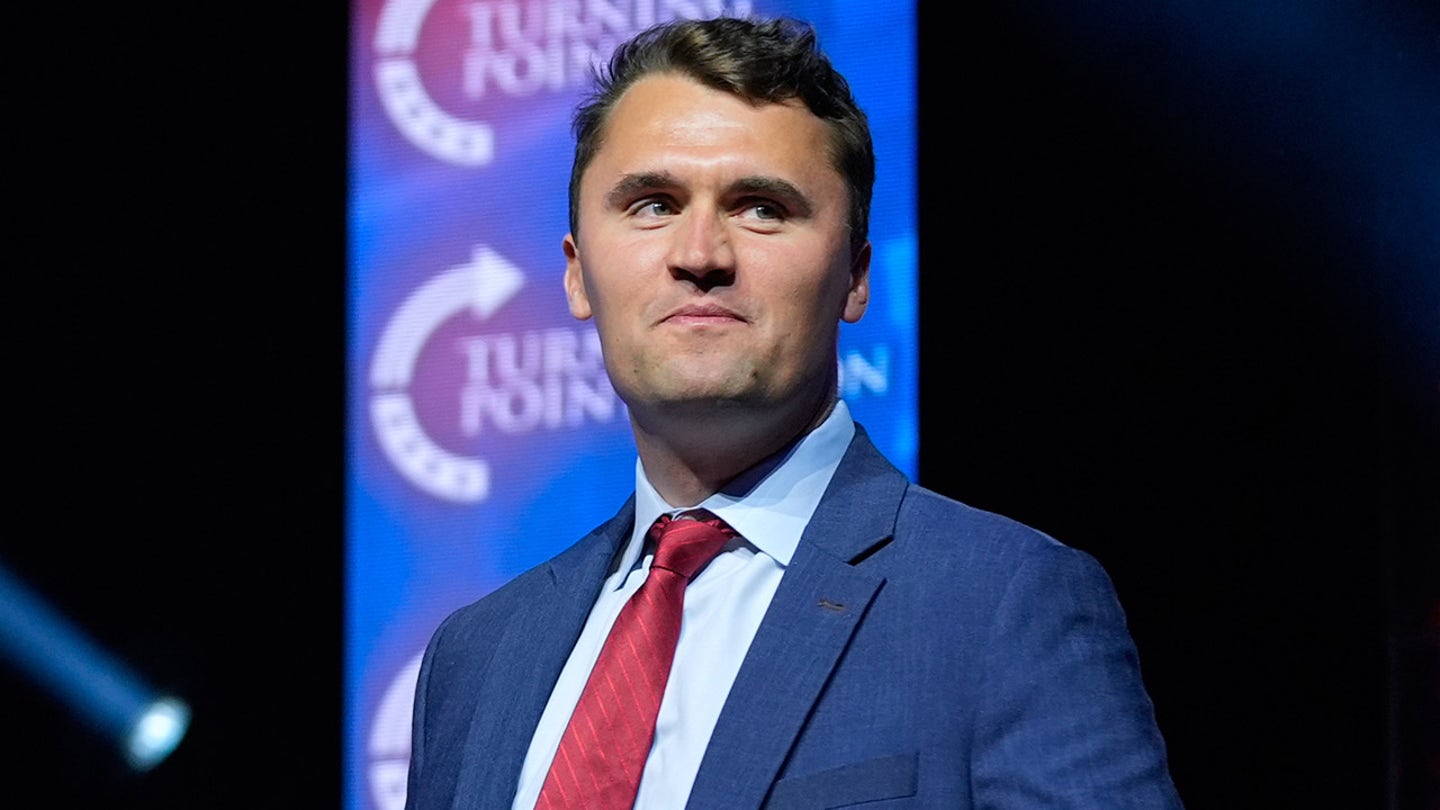
Commanders fans face backlash for booing Trump during US military ceremony
Entities mentioned:
- Washington Commanders fans: Moral outrage, Indignation, Self-respect
- President Donald Trump: Power, Recognition, Influence
- NFL: Patriotism, Professional pride, Unity
- Amon-Ra St. Brown: Competitive spirit, Recognition, Self-expression
- Mark Clouse: Professional pride, Duty, Unity
Article Assessment:
Credibility Score: 70/100
Bias Rating: 55/100 (Center)
Sentiment Score: 35/100
Authoritarianism Risk: 40/100 (Generally Democratic)
Bias Analysis:
The article presents multiple perspectives, including both positive and negative reactions to Trump's presence. However, there's slightly more focus on the controversy and negative reactions, balancing out to a near-center position.
Key metric: Political Polarization Index
Let me tell you something, folks - this game just took an unexpected turn! The Washington Commanders' home turf became a political gridiron as fans went on the offensive, unleashing a barrage of boos at President Trump. It's like we're watching two teams with completely different playbooks! On one side, we've got the Commanders organization trying to run a patriotic play, honoring our troops. But some fans are calling an audible, using their home field advantage to voice their opposition. This is the kind of divided locker room that can really shake up team morale! Meanwhile, Lions' wide receiver Amon-Ra St. Brown is out there turning political moves into end zone celebrations. I'm telling you right now, this is the kind of fourth-quarter drama that could impact the entire league's unity strategy. The NFL's trying to coach a game of national unity, but it looks like some players aren't sticking to the game plan. This is RIDICULOUS, folks! We're seeing a real test of the league's leadership skills as they try to navigate this political playing field without fumbling their patriotic image.

'FOX NFL Sunday' Continues Tradition of Honoring Veterans Day, U.S. Armed Forces
Entities mentioned:
- FOX Sports: Patriotism, Professional pride, Recognition
- U.S. Armed Forces: Duty, Loyalty, Self-respect
- NFL: Competitive spirit, Legacy, Unity
Article Assessment:
Credibility Score: 85/100
Bias Rating: 65/100 (Lean Right)
Sentiment Score: 85/100
Authoritarianism Risk: 30/100 (Generally Democratic)
Bias Analysis:
The article leans right due to its strong pro-military stance and focus on patriotic themes. However, it maintains a factual approach in describing the event details.
Key metric: Public Support for Military
Let me tell you something - this is a CHAMPIONSHIP PLAY by FOX Sports! They're stepping up to the plate and delivering a slam dunk for our troops. It's like they're running a perfect two-minute drill, honoring our veterans with the precision of a Tom Brady touchdown pass. The NFL is showing true team spirit here, folks, bringing together gridiron warriors and real-life heroes in a display that would make any coach proud. This Veterans Day special is the ultimate power play, showcasing the unbreakable bond between America's favorite sport and those who defend our freedom. I'm telling you right now, this is the kind of clutch performance that separates the contenders from the pretenders!

Trump greets Bryson DeChambeau at Ryder Cup to kick off afternoon session
Entities mentioned:
- Donald Trump: Recognition, Influence, Pride
- Bryson DeChambeau: Competitive spirit, Ambition, Professional pride
- Team USA: Competitive spirit, Unity, Pride
- Team Europe: Competitive spirit, Determination, Pride
- Keegan Bradley: Loyalty, Professional pride, Duty
- Scottie Scheffler: Patriotism, Professional pride, Unity
- Tyrrell Hatton: Enthusiasm, Competitive spirit, Sportsmanship
- Robert MacIntyre: Competitive spirit, Wariness, Professional pride
Article Assessment:
Credibility Score: 75/100
Bias Rating: 55/100 (Center)
Sentiment Score: 65/100
Authoritarianism Risk: 35/100 (Generally Democratic)
Bias Analysis:
The article presents multiple perspectives, including positive reactions from both US and European players. However, there's slightly more emphasis on positive US reactions and Trump's impact.
Key metric: US Sporting Event Attendance
Let me tell you something, folks - this is a GAME-CHANGER! The Commander-in-Chief is stepping up to the tee box of international competition, and it's sending shockwaves through the Ryder Cup! Trump's surprise appearance is like a clutch substitution in the fourth quarter, energizing Team USA when they needed it most. We're seeing a championship mentality from both sides as they navigate this high-stakes diplomatic sand trap. DeChambeau's cannon of a drive set the tone, but now it's a whole new ballgame with the President in attendance. This is the kind of fourth-quarter drama that defines legends, folks! The players are feeling the pressure, knowing the leader of the free world is watching their every swing. It's crunch time, and we're about to see who's got the guts to sink the winning putt in this geopolitical putting contest!

NFL great's NJ hometown refused to lower flags in honor of Charlie Kirk, its neighbors rose to the occasion
Entities mentioned:
- Nick Mangold: Moral outrage, Righteousness, Patriotism
- Madison, NJ: Duty, Wariness, Self-preservation
- Florham Park: Patriotism, Duty, Loyalty
- East Hanover: Duty, Loyalty, Patriotism
- Summit: Duty, Loyalty, Patriotism
- Donald Trump: Power, Control, Legacy
- Charlie Kirk: Influence, Legacy, Freedom
- Greg Abbott: Unity, Loyalty, Patriotism
Article Assessment:
Credibility Score: 75/100
Bias Rating: 65/100 (Lean Right)
Sentiment Score: 35/100
Authoritarianism Risk: 45/100 (Mixed/Neutral)
Bias Analysis:
The article leans right by focusing heavily on conservative figures and their supporters. It presents criticism of those not lowering flags while giving more space to those who complied with Trump's proclamation.
Key metric: National Unity
Let me tell you something - this flag-lowering situation is turning into a FULL-COURT PRESS of political drama! We've got former NFL star Nick Mangold coming off the bench to call out his hometown for not following the President's playbook. It's like we're watching a high-stakes game of patriotic hot potato, with some towns stepping up to the plate and others fumbling the ball. This is RIDICULOUS, folks! We've got a divided locker room situation here, with neighboring towns playing by different rulebooks. It's fourth quarter, and the clock is ticking on national unity. Some players are showing real team spirit, while others are sitting on the sidelines. I'm telling you right now, this is the kind of play that can make or break a nation's championship mentality!

'Miracle on Ice' Olympic USA hockey team takes next step toward Congressional Gold Medals
Entities mentioned:
- 1980 USA Olympic Hockey Team: Determination, Competitive spirit, Unity
- US Congress: Recognition, Pride, Legacy
- Rep. Tom Emmer: Patriotism, Pride, Recognition
- Rep. Elise Stefanik: Pride, Legacy, Recognition
Article Assessment:
Credibility Score: 85/100
Bias Rating: 65/100 (Lean Right)
Sentiment Score: 85/100
Authoritarianism Risk: 25/100 (Generally Democratic)
Bias Analysis:
The article leans slightly right due to its focus on Republican representatives' statements and patriotic framing. However, it maintains factual reporting on the bipartisan nature of the act.
Key metric: National Unity and Pride
Let me tell you something, folks - this is a GAME-CHANGING play by Congress! The 'Miracle on Ice' team is finally getting the championship recognition they deserve. These underdogs stepped up to the plate 45 years ago and knocked it out of the park against the Soviet powerhouse. Now, Congress is making the clutch move to immortalize their legendary performance. This isn't just about hockey - it's about America's winning spirit! The team showed true grit and a never-say-die attitude that defines what it means to wear the red, white, and blue. This Congressional Gold Medal is like raising the Stanley Cup of patriotism. It's a fourth-quarter rally that proves the American dream is alive and kicking. I'm telling you right now, this move will fire up the home crowd and remind everyone what it means to have that championship mentality!

NJ town points to state's flag status after Jets legend's criticism following Charlie Kirk assassintion
Entities mentioned:
- Madison, New Jersey: Duty, Self-preservation, Professional pride
- Nick Mangold: Moral outrage, Righteousness, Patriotism
- Charlie Kirk: Free speech, Legacy, Influence
- Donald Trump: Power, Control, Loyalty
- New Jersey State Government: Control, Duty, Professional pride
Article Assessment:
Credibility Score: 70/100
Bias Rating: 55/100 (Center)
Sentiment Score: 30/100
Authoritarianism Risk: 35/100 (Generally Democratic)
Bias Analysis:
The article presents multiple viewpoints, including the town's defense and Mangold's criticism. However, it leans slightly right by emphasizing the controversy and patriotic angle.
Key metric: Political Unity Index
Let me tell you something, folks - this flag controversy is turning into a real political slugfest! Madison, New Jersey is playing defense against an all-out blitz from former Jets star Nick Mangold. It's like they're in the red zone of public opinion, trying to avoid a major turnover! The town officials are sticking to their playbook, following the state's game plan on flag protocol. But Mangold, with his Pro Bowl pedigree, is bringing the heat like it's fourth and long! This is the kind of high-stakes match-up that tests the team spirit of a nation. Are we seeing a breakdown in the huddle of American unity? Or will this be a rallying point for a comeback in our national cohesion? I'm telling you right now, how this plays out could be a game-changer for the Political Unity Index. It's time for leadership to step up to the plate and show some championship-level decision making!

Ex-Jets star 'disgusted' with New Jersey town for failing to honor Charlie Kirk
Entities mentioned:
- Nick Mangold: Righteousness, Moral outrage, Patriotism
- Charlie Kirk: Influence, Legacy, Freedom
- Madison, New Jersey: Wariness, Self-preservation, Indignation
- President Donald Trump: Power, Control, Loyalty
- Gov. Phil Murphy: Control, Self-preservation, Professional pride
- Bergen County: Self-preservation, Duty, Obligation
Article Assessment:
Credibility Score: 70/100
Bias Rating: 65/100 (Lean Right)
Sentiment Score: 25/100
Authoritarianism Risk: 45/100 (Mixed/Neutral)
Bias Analysis:
The article leans right, framing the flag issue as a clear moral imperative. It prominently features conservative voices and perspectives, while giving less space to opposing viewpoints.
Key metric: Social Cohesion
Let me tell you something - this political football game is getting HEATED! We've got a real clash of titans here, folks. On one side, we have team 'Patriotic Respect' led by MVP Nick Mangold, throwing a Hail Mary pass to honor fallen player Charlie Kirk. But WAIT! The opposing team 'Local Government' is running interference, refusing to lower their flag! This is a CRUCIAL play in the fourth quarter of our nation's unity game. I'm telling you right now, this kind of team division could cost us big in the championship of social cohesion. We're seeing some serious defensive strategies from Madison and Bergen County, trying to protect their end zone from federal pressure. But Mangold's not backing down - he's bringing his A-game, calling out the coaches and putting the pressure on. This is the kind of high-stakes political athletics that can make or break a nation's team spirit!

Pat McAfee delivers patriotic message in aftermath of Charlie Kirk assassination: 'Greatest country on Earth'
Entities mentioned:
- Pat McAfee: Unity, Patriotism, Enthusiasm
- Charlie Kirk: Legacy, Influence, Ambition
- ESPN College GameDay: Professional pride, Influence, Unity
Article Assessment:
Credibility Score: 70/100
Bias Rating: 65/100 (Lean Right)
Sentiment Score: 75/100
Authoritarianism Risk: 30/100 (Generally Democratic)
Bias Analysis:
The article leans right due to its strong patriotic framing and focus on unity through traditional American values. However, it maintains some balance by acknowledging differing backgrounds and opinions.
Key metric: National Unity Index
Ladies and gentlemen, what we've just witnessed is a GAME-CHANGING PLAY in the arena of national morale! Pat McAfee, former NFL kicker turned motivational quarterback, has stepped up to the plate in a HUGE way. In the wake of tragedy, he's calling an audible, shifting the focus from our differences to our shared love of the game - and I'm talking about the game of LIFE in the good ol' USA! This is a classic fourth-quarter rally, folks. McAfee's using the universal language of football to bridge divides wider than any offensive line. He's reminding us that just like in a packed stadium, we're all on the same team when it comes to our love for this country. It's a championship mentality that could be the Hail Mary pass America needs right now!

Singer Jim Cornelison treats NFL fans to epic national anthem performance before Bears-Vikings game
Entities mentioned:
- Jim Cornelison: Professional pride, Patriotism, Recognition
- Chicago Bears: Competitive spirit, Pride, Legacy
- Minnesota Vikings: Competitive spirit, Ambition, Pride
- NFL: Pride, Legacy, Influence
Article Assessment:
Credibility Score: 85/100
Bias Rating: 50/100 (Center)
Sentiment Score: 75/100
Authoritarianism Risk: 20/100 (Strongly Democratic)
Bias Analysis:
The article presents a straightforward account of the event without favoring any political stance. It focuses on the performance and Cornelison's background, maintaining a neutral tone throughout.
Key metric: National Unity and Pride
Let me tell you something, folks - this is a CHAMPIONSHIP PERFORMANCE right out of the gate! Jim Cornelison just stepped up to the plate and knocked it out of the park with his national anthem rendition! I'm telling you right now, this is the kind of pregame motivation that can turn the tide for a team. The Bears and Vikings might be squaring off on the gridiron, but Cornelison's vocal athleticism united the crowd in a way that transcends team loyalties. This is the kind of clutch performance that sets the tone for the entire season. The NFL's decision to showcase such talent is a strategic play that scores big points with the fans and brings that championship mentality to the stadium before the first snap. Cornelison's track record across multiple sports shows he's a true franchise player in the anthem game!

World Series champion Mark Teixeira announces congressional campaign in Texas
Entities mentioned:
- Mark Teixeira: Ambition, Patriotism, Influence
- Donald Trump: Power, Influence, Legacy
- Chip Roy: Ambition, Patriotism, Influence
- Republican Party: Power, Control, Influence
Article Assessment:
Credibility Score: 70/100
Bias Rating: 65/100 (Lean Right)
Sentiment Score: 60/100
Authoritarianism Risk: 35/100 (Generally Democratic)
Bias Analysis:
The article leans right due to its uncritical presentation of conservative talking points and emphasis on Trump's agenda. While it presents factual information, the framing and language choices indicate a slight right-leaning bias.
Key metric: Political Polarization Index
As a social scientist, I analyze that this article highlights the increasing trend of celebrities entering politics, potentially impacting the Political Polarization Index. Teixeira's entry into politics, emphasizing his support for Trump's 'America First' agenda, indicates a continuation of polarized political discourse. His transition from sports to politics may attract a new demographic of voters, potentially increasing political engagement but also possibly deepening existing ideological divides. The emphasis on 'conservative' values and 'defending' certain agendas suggests a combative political approach, which could further contribute to political polarization.